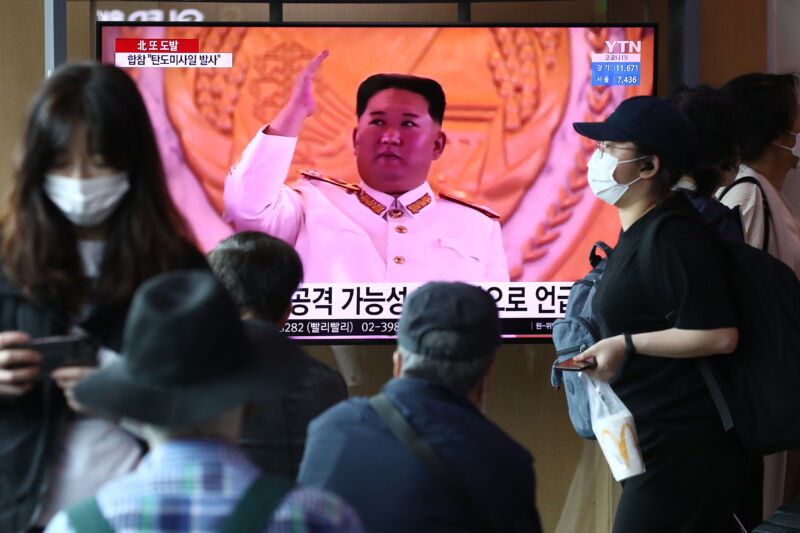
A mushrooming COVID-19 outbreak in North Korea has reached over 1.7 million cases, with nearly 233,000 new cases reported on Wednesday alone, according to state media reports. It's a startling rise given that North Korea claimed to have zero COVID-19 cases a week ago.
But now the secretive, authoritarian country is acknowledging that the pandemic virus has been spreading "explosively" since late April. Many experts have interpreted the admission as a sign of a dire situation in the country and a plea for international aid. North Korea has a weak health care system, and many of its people are undernourished due to an ongoing food crisis. Moreover, the country previously shunned offers of vaccines from the United Nations-backed COVAX program and China, leaving its population unvaccinated.After North Korea acknowledged the outbreak for the first time last Thursday, South Korea offered aid, including vaccines. But North Korea has reportedly not responded. But the country may have accepted aid from its closest ally, China. According to unnamed diplomats who spoke with The Wall Street Journal, three North Korean cargo planes flew to the Chinese city of Shenyang on Monday, returning the same day carrying basic medical supplies.
In the meantime, North Korean leader Kim Jong Un has openly chastised his country's response as state media reported a rosy outlook. In a politburo meeting on Tuesday, Kim blasted the "immaturity in the state capacity for coping with the crisis" and blamed the poor response on officials' "non-positive attitude, slackness, and non-activity,” according to KCNA.
Still, the report said officials discussed "maintaining the good chance in the overall epidemic prevention front" and that the situation was taking a "sustained favorable turn."
WHO worried
Outside health experts are not as optimistic. In a press briefing Tuesday, Director-General of the World Health Organization Tedros Adhanom Ghebreyesus expressed worry about the spread of disease, lack of data, and refusals of aid.
"WHO is deeply concerned at the risk of further spread of COVID-19 in [North Korea], particularly because the population is unvaccinated and many have underlying conditions putting them at risk of severe disease and death," Tedros said. "WHO have requested that the Democratic People’s Republic of Korea share data and information, and WHO has offered to provide a package of technical support and supplies, including diagnostic tests, essential medicines, and vaccines ready to be deployed to the country." So far, North Korea has not taken the WHO up on the offer.
In North Korea's state media reports, the country has reported 62 deaths. Outside experts expect 62 deaths to be significantly fewer than the actual total, given the large number of cases the government has acknowledged. But, that number is in doubt, too, because the country lacks testing resources. Currently, cases are being counted based on unexplained fevers. People infected with the coronavirus who are asymptomatic, only mildly ill, or lacking a fever may not be counted, potentially making the 1.7 million a vast underestimate.
Health experts are also concerned that the unchecked spread of the virus could make North Korea a breeding ground for new variants. "Where you have unchecked transmission there’s always a higher risk of new variants emerging," Mike Ryan, executive director of the WHO's Health Emergencies Programme, said in the press briefing. Vaccines will save lives, reduce hospitalization and suppress transmission, but they also function "to keep pressure on the virus so we don’t see the same rate of evolution," he said.
reader comments
165